China’s global proxy game
Afghanistan has become the first significant theatre of effective confrontation between the West and China. But with its deep-rooted economic ties, could the U.S. and NATO actually confront China?
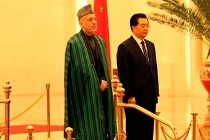 Courtesy: Afghanistan Goverment/WikimediaCommons
Courtesy: Afghanistan Goverment/WikimediaCommons
Afghanistan has become the first significant theatre of effective confrontation between the West and China. But with its deep-rooted economic ties, could the U.S. and NATO actually confront China?
 Courtesy: nazeah/Wikimediacommons - Ramesh Lalwani/Flickr
Courtesy: nazeah/Wikimediacommons - Ramesh Lalwani/Flickr
The year 2011 saw various events - the Arab Spring, anti- corruption protests, Europe's sovereign debt crisis - transform countries and reshape the world order. Gateway House takes a look at what these events mean for India, and presents India's top foreign policy cheers and jeers for the year.
 Courtesy: Michael Trolove/WikimediaCommons
Courtesy: Michael Trolove/WikimediaCommons
Growing instability in the region make the planned Turkmenistan-Afghanistan-Pakistan-India (TAPI) gas pipeline seem more like a burden than a solution to India’s hunt for alternative energy sources. Is it wise for India to move ahead with the $7.6 billion project?
 Courtesy: UN Photo/Paul Banks
Courtesy: UN Photo/Paul Banks
After the crass misuse of Responsibility to Protect (R2P) in Libya, the broader question is: where is R2P headed? Do the events in Libya herald a more explicit assertion of this doctrine in other parts of the world? And should India rethink its viewpoint towards this ambiguous doctrine?
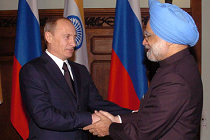 Courtesy: PMO
Courtesy: PMO
The India-Russia relationship has seen much progress over the past year - 30 MoU's were signed, two Russian nuclear reactors were set up in India and visa regimes have been eased considerably. But will this be enough to lift the relationship from the benign neglect of the past?
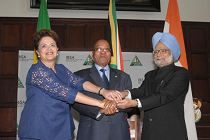 Courtesy: PMO
Courtesy: PMO
India and Brazil’s increasing engagement in Africa is a clear sign that both countries are embracing their new roles as global diplomats. By joining forces to bolster Africa’s food security, they have the chance to break ground on a tangible agenda that could have a far-reaching impact on matters of global concern
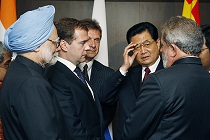 Courtesy: www.kremlin.ru/Flickr
Courtesy: www.kremlin.ru/Flickr
In a reversal of historical roles, the BRICS nations may be coming to Europe’s rescue. During the Asian Financial Crisis, the International Monetary Fund (IMF) introduced structural adjustments in return for IMF loans, and many institutions and individuals went bankrupt. Will it be any different now?
India’s relations with Russia have to be set against the broader strategic landscape of India’s security issues and geopolitical priorities, especially in Central Asia and Afghanistan, where Russia is a key player. An increase in private sector initiatives can also ensure greater cooperation in the years to come.
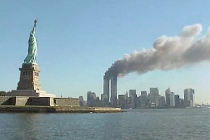 Courtesy:
Courtesy:
A decade after 9/11, the U.S. has prevented further terrorist attacks - a major achievement. But with a $1.3 trillion budget deficit, a debt downgrade, and 24 million Americans searching for jobs, the U.S. needs to attend to matters at home rather than intervening in the world's affairs.
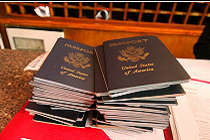 Courtesy: FourthFloor/Flickr
Courtesy: FourthFloor/Flickr
Despite their economic downturns, domestic tensions keep developed countries from embracing the revitalizing potential of foreign workers. Ambassador Neelam Deo argues that India should continue to leverage its history of diversity and capitalize on a world more open to the free flow of goods and services.